
Data from the OlympiA trial support olaparib use in certain patients with BRCA1/2–positive early breast cancer.

Your AI-Trained Oncology Knowledge Connection!


Data from the OlympiA trial support olaparib use in certain patients with BRCA1/2–positive early breast cancer.

A 40% reduction in the risk of death was observed when 177Lu-PSMA-617A was added to standard of care therapy in patients with PSMA-positive metastatic castration-resistant prostate cancer.

A new treatment arm of a phase 2 trial examining PDS0101 plus pembrolizumab in patients with HPV-related head and neck cancers will be opened to patients with immune checkpoint inhibitor–pretreated disease.

According to new research, patients with chronic lymphocytic leukemia may have suboptimal antibody-mediated response with COVID-19 vaccination.

Based on positive phase 3 results, a new drug application for sugemalimab to treat patients with locally advanced or unresectable stage III non–small cell lung cancer will likely be submitted to the FDA.

The results from a retrospective trial that found stereotactic radiosurgery produced comparable results for both brainstem metastases and nonbrainstem brain metastases suggest both groups of patients should be eligible for stereotactic radiosurgery clinical trials.

Patients who underwent advanced molecular imaging had higher rates of disease-free survival, according to new research.
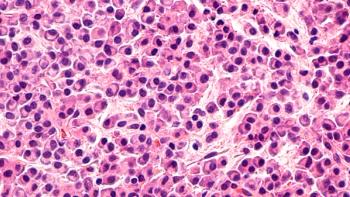
Based on data from a phase 1 trial, the FDA granted breakthrough therapy designation to teclistamab for certain patients with pretreated multiple myeloma.

The priority review designation for pacritinib is based off results from 3 trials investigating pacritinib 200 mg twice daily for patients with myelofibrosis and severe thrombocytopenia.

Look back at some of the important news and notes from last week you might have missed in the world of oncology from the FDA and the journal ONCOLOGY®.
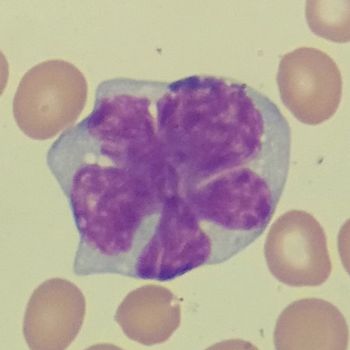
A retrospective analysis aims to define treatment outcomes in patients with mantle cell lymphoma who are elderly or unfit for standard therapy.
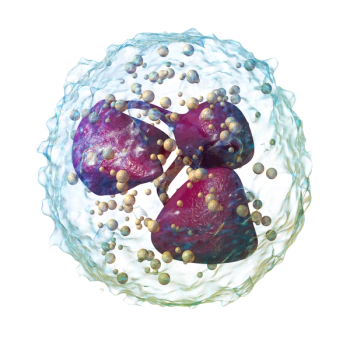
Based on phase 3 data, plinabulin plus granulocyte colony-stimulating factor is being considered by the FDA for the prevention of chemotherapy-induced neutropenia.

A 3-year follow-up analysis of event-free and overall survival revealed similar results for patients with stage II or III ERBB2-positive breast cancer treated with either neoadjuvant anthracycline and nonanthracycline treatment regimens.

Most elderly patients with acute myeloid leukemia and myelodysplastic syndromes cannot undergo intensive chemotherapy, but more than half of the patients in a new study responded to a regimen of ultra low–dose decitabine and low-dose cytarabine with G-CSF.

During an After Hours segment of Medical World News®, Inga Lennes, MD, MBA, MPH, spoke about her passion for healthy cooking and how it helps her unwind after a busy week of treating patients.

A presentation at the recent 46th Annual Oncology Nursing Society’s Annual Meeting focused on ethical dilemmas facing oncology nurses and how clinicians are managing them.

Investigators successfully established the phase 2 dose of APVO436 for patients with acute myeloid leukemia or myelodysplastic syndrome after an acceptable safety profile was achieved in patients with responses to therapy.

CancerNetwork® spoke with Cynthia X. Ma, MD, PhD, of Washington University School of Medicine in St. Louis, following the American Association for Cancer Research Annual Meeting 2021 about the benefits of the meeting to clinical trial investigators.

CancerNetwork® sat down with Health and Wellness expert Sonia Jhas to discuss best practices for staying active on a busy, demanding schedule.
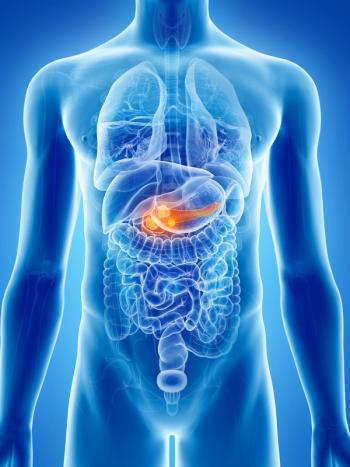
The phase 1/2a trial reported favorable efficacy data in the first-line setting when compared with existing historical results for treating advanced pancreatic cancer.

Objective response data from a phase 2 trial supported the FDA’s decision to grant infigratinib accelerated approval to treat patients with certain a certain type of cholangiocarcinoma.

Two posters on the efficacy of trilaciclib for treating myelosuppression were presented at the Virtual International Society for Pharmacoeconomics and Outcomes Research 2021.

Based on data from the phase 1/2 CodeBreaK 100 trial, the FDA approved the KRAS G12C inhibitor sotorasib.
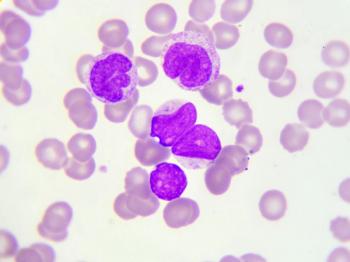
A phase 2 trial evaluated the combination of vemurafenib plus rituximab, which produced a complete response in 87% of the evaluable patients with hairy-cell leukemia.

CancerNetwork® spoke with Albert H. Kim, MD, PhD, about a new Brain Tumor Center at Siteman, for which he is the inaugural director.

Based on data from the CARTITUDE-1, the BCMA-targeting CAR T-cell therapy ciltacabtagene autoleucel moves forward towards regulatory approval in multiple myeloma.

The approval of 18F-DCFPyL comes on the heels of positive results from the company-sponsored research in the CONDOR and OSPREY trials investigating the imaging agent for prostate cancer.

The ready-to-use subcutaneous formulation of leuprolide mesylate, Camcevi, was approved for use in patients with prostate cancer by the FDA.

Investigators aimed to determine if oncologic outcomes of patients in the real-world setting matched those of a pivotal clinical trial that led to the approval of eribulin mesylate in patients with metastatic breast cancer.

The 2020 Trending Now in Cancer report highlighted a shift in oncology care resulting from the COVID-19 pandemic.